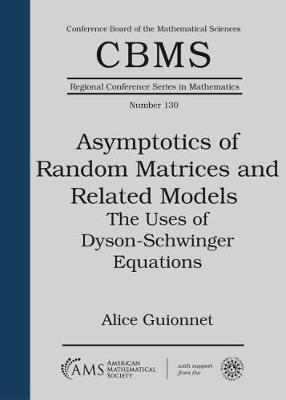CBMS Regional Conference Series in Mathematics
1 total work
Probability theory is based on the notion of independence. The celebrated law of large numbers and the central limit theorem describe the asymptotics of the sum of independent variables. However, there are many models of strongly correlated random variables: for instance, the eigenvalues of random matrices or the tiles in random tilings. Classical tools of probability theory are useless to study such models.
These lecture notes describe a general strategy to study the fluctuations of strongly interacting random variables. This strategy is based on the asymptotic analysis of Dyson-Schwinger (or loop) equations: the author will show how these equations are derived, how to obtain the concentration of measure estimates required to study these equations asymptotically, and how to deduce from this analysis the global fluctuations of the model. The author will apply this strategy in different settings: eigenvalues of random matrices, matrix models with one or several cuts, random tilings, and several matrices models.
These lecture notes describe a general strategy to study the fluctuations of strongly interacting random variables. This strategy is based on the asymptotic analysis of Dyson-Schwinger (or loop) equations: the author will show how these equations are derived, how to obtain the concentration of measure estimates required to study these equations asymptotically, and how to deduce from this analysis the global fluctuations of the model. The author will apply this strategy in different settings: eigenvalues of random matrices, matrix models with one or several cuts, random tilings, and several matrices models.
